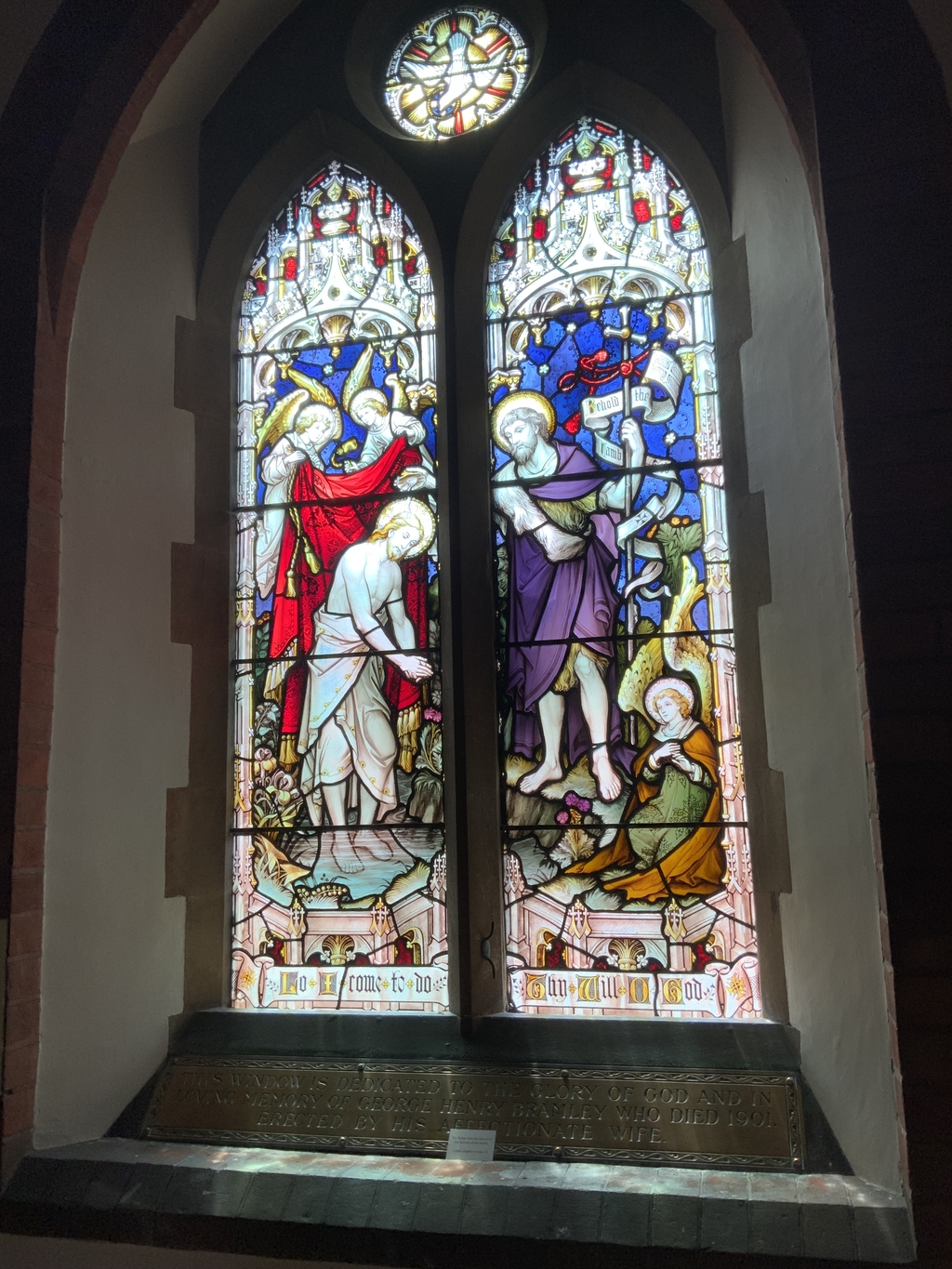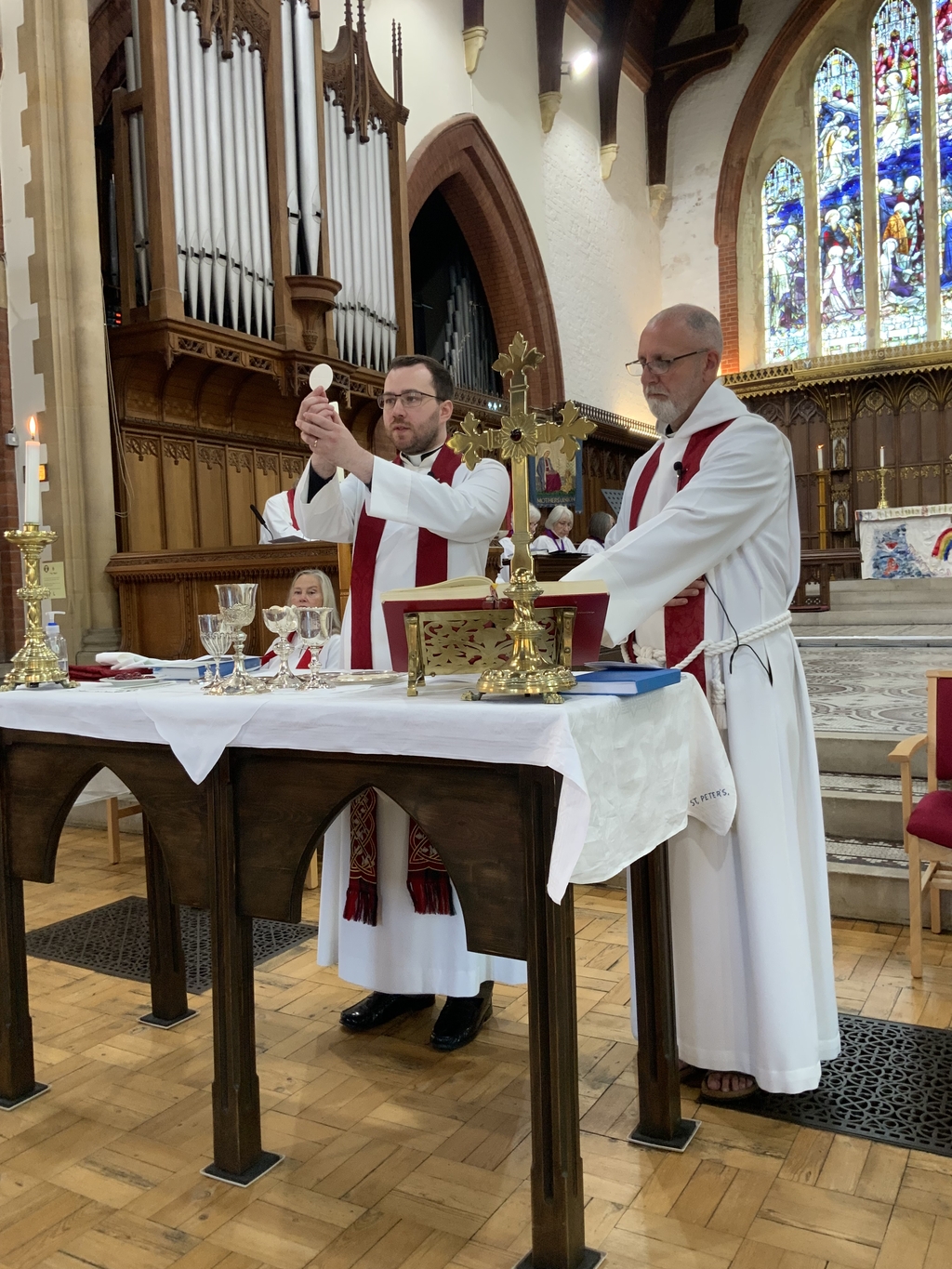According to Luke, Jesus lifted up his hands, blessed the disciples, then withdrew from them and was carried up into heaven. Luke says in Acts that as they were watching, he was lifted up, and a cloud took him out of their sight.
He’d given instructions for them to wait in Jerusalem for what would happen next. The appearances to people over the past 40 days had been unusual to say the least: he was suddenly there in locked rooms, and disappeared as fast as he appeared. And yet he could eat, he wasn’t a ghost. He was like an angel. The scriptures spoke of angels appearing and disappearing, of looking like people, and of descending from and ascending to heaven. Their voices were sometimes heard coming from heaven. Heaven was ‘up there’, toward the stars.
They knew that Elijah the prophet had spectacularly risen to heaven. ‘As they continued walking and talking, a chariot of fire and horses of fire separated the two of them, and Elijah ascended in a whirlwind into heaven.’ (2 Kings 2:11)
Now the human form of the risen Jesus had gone for good. The disciples must wait. Of the four instructions Jesus gave his disciples, to come, to follow, to wait, and to go, I wonder whether this one is the most difficult.
I don’t know about you, but if I’m waiting for someone to arrive or for a parcel, I can’t focus on anything. I’m put out. But waiting time isn’t for pacing up and down. Apparently, the Hebrew word used in the Old Testament for waiting was an active word. Waiting time is time to be used in preparation for what’s coming next. The disciples rejoiced. They remained together. With others, including the women, they constantly devoted themselves to prayer. They spent time in the temple worshipping God. They agreed on a twelfth disciple to replace Judas Iscariot. They came to Jesus in prayer, they followed him in fellowship, they waited for him before they could go for him. It was active waiting, not empty waiting.
It seems to me that every day we’re alive Jesus wants us to be living in anticipation of the next time he will call us to go for him. He wants us to be prepared. And he wants us to be living every moment in close relationship with him and with other people, in fellowship, as the disciples did. This is healthy. We can have peace in our hearts, even when we’ve lost someone. We live with the hope of heaven for them and for us, if we believe in God.
Some might think that they’re too old or frail for Jesus to call them to go for him, to share the good news of Christ with other people. Let me remind you that Moses didn’t see the burning bush until he was 80 years old. We never know when God will bring someone near to us who needs to hear what God will give us to say. Even the way we die in faith might inspire other people. To draw close to someone with that serenity of peace that comes from time spent in prayer is to draw close to God.
As we wait for the next time God wants us to share the good news of his love: maybe today, maybe tomorrow, maybe next week, let us prepare ourselves in prayer, worship and fellowship as we come to him, and follow him. Let’s be ready to go where Jesus leads us. Amen.
Julie Rubidge, Lay Minister











